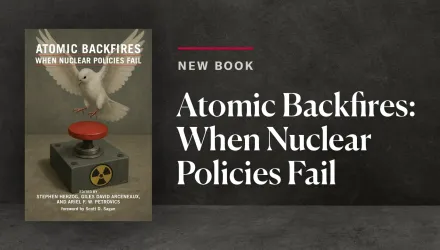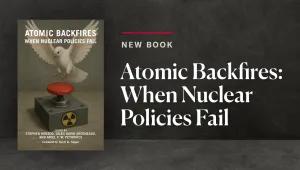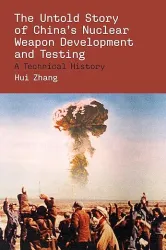THE FAILURE of North Korea to meet the deadline for closing its Yongbyon nuclear reactor and providing a list of all nuclear materials provides a preview of what is to come on the long road between Pyongyang's pledge to denuclearize and the actual elimination of all nuclear weapons and materials from North Korea.
North Korea has a plausible excuse for missing the first deadline. As part of the Feb. 13 agreement, the Bush administration agreed to release $25 million of North Korean funds frozen in a Macau bank. According to the US government, a legal snafu delayed release of the funds. North Korea refused to act until it sees the money.
The parties will get over this road bump, the $25 million will be transferred. North Korea will then close its Yongbyon reactor, invite the inspectors back to verify this, and hand over a list of some, not all, nuclear materials and activity. At that point, the hard bargaining will begin.
From Kim Jong Il's perspective, with an arsenal of 10 bombs of plutonium and a nuclear weapons test, North Korea is a self-declared if yet-unrecognized nuclear weapons state. His goal is to keep these weapons, sell the aging Yongbyon reactor and reprocessing facility for the highest price, and do this in a way that shows sufficient deference to Beijing to restore its de facto protection.
Kim Jong Il's experience with the other parties, especially President Bush, gives him grounds for believing that he can have his cake and eat it: sell his nuclear weapons production capability to the other states while keeping a minimum nuclear deterrent.
South Korea will be the first member of the coalition to defect. Declaration of a willingness to denuclearize was sufficient to lead President Roh Moo Hyun of South Korea to declare victory and resume major South Korean bilateral economic, food, and oil assistance to its Northern brothers. After the closing of Yongbyon, watch for President Roh to propose a bilateral summit with Kim Jong Il. For that meeting Kim Jong Il will demand tribute at least equal to that paid by Roh's predecessor, who delivered $500 million.
Splitting the United States and China will be more difficult, but not impossible. China's leadership was offended by North Korea's blatant disregard of their warnings against testing a nuclear bomb. Whether this reflects a strategic judgment by President Hu Jintao that a nuclear-armed North Korea is unacceptable to China's national interests, or simply embarrassment at being stiffed by a small dependent neighbor, remains unclear. To this point, China has been more concerned about the prospect of American actions aimed at toppling Kim Jong Il's regime than about North Korea's buildup of plutonium for nuclear bombs.
For Beijing, the Bush administration's primary objective of regime change is its own worst nightmare. Collapse could send millions of refugees into China. More importantly, it would lead to absorption of North Korea by South Korea, thus eliminating the buffer between a military ally of the United States and China. In Beijing's narrative, preventing this outcome was the reason China entered the Korean War and pushed US forces back to the current divide between North and South Korea. Kim Jong Il's objective must therefore be to persuade President Hu that the Bush administration has not changed its stripes: that its real objective continues to be the destabilization, not the denuclearization, of North Korea.
Considerable uncertainty remains about how the Bush administration will play its hand. Secretary of State Condoleezza Rice and her chief negotiator, Chris Hill, have for now overcome the previous paralysis caused by the divisions between the Cheney-Rumsfeld-Bolton axis that demanded regime change and the State Department. Ambassador Hill proved effective in orchestrating North Korea's Feb. 13 agreement. The 60-day delay in the release of the $25 million, however, is not encouraging for an administration that has only 614 [as of May 17] days left.
After the closing and disabling of Yongbyon, expect lengthy slogging through incomplete records, all in Korean script, missed deadlines, disputes about who can visit where, and all the other antics that have left International Atomic Energy Agency inspectors unable to close the nuclear file in Iran after 20 years of efforts.
My bet, therefore, is that Kim Jong Il will succeed: selling his future nuclear weapons production capability at Yongbyon for a good price and China's graces, while keeping a minimum nuclear deterrent.
Allison, Graham. “Disarming North Korea.” The Boston Globe, May 20, 2007





